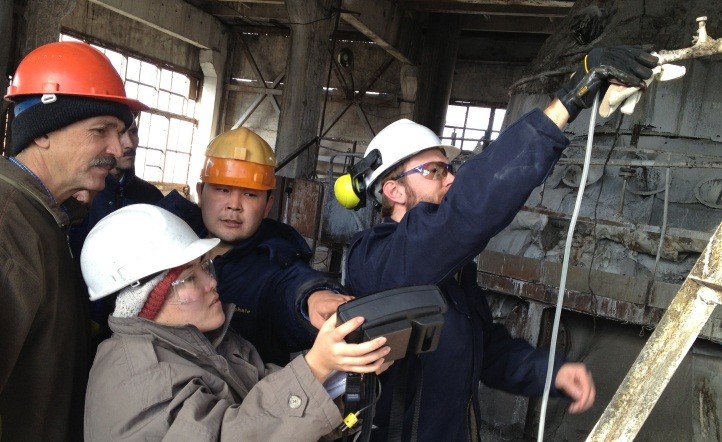
USAID is helping Central Asia to reduce greenhouse gas intensity and emissions by stimulating investments in energy efficiency technologies and programs. A key step towards efficiency in the industrial sector is creating sound energy management systems, known globally as the ISO-50001 standard, which provides public and private sector organizations with strategies to increase energy efficiency, reduce costs and improve energy performance.
The concepts of energy management and the ISO-50001 standard are still new in Central Asia. ISO, or the International Organization for Standardization, creates energy management recommendations based on the experience of over 160 member countries. Kazakhstan’s energy efficiency law directs energy-intensive entities to introduce and develop energy management systems within their organizations, but larger frameworks are not in place to ensure broad scale success. USAID is working to expand awareness of the benefits of an energy management system and help selected large industries prepare to become accredited under the ISO-50001 standard.
In 2012, USAID, through its Central Asian Energy Efficiency Support Program, presented a series of workshops in Astana, Kazakhstan, where participants were introduced to best practices on energy audits, elements of the ISO-50001 standard, and energy management planning and implementation. The workshops drew over 70 participants including governmental agencies and industrial enterprises from the national holding group Samruk-Kazyna.
USAID began working with four of Kazakhstan’s largest industries to develop energy management systems in their facilities. In December 2012, program experts conducted an analysis at a plant belonging to Kazphosphate, a large phosphate mining and processing company. In cooperation with the U.S. Department of Energy/Oak Ridge National Laboratory, an audit was conducted on one of the processing lines to determine the plant's gap in reaching the ISO-50001 standard.
The audit identified more than $1 million in potential annual energy cost savings that could be achieved. Payback periods for all measures identified were less than three years.
"We have a very productive cooperation between Kazphosphate and CAEESP [USAID's Central Asian Energy Efficiency Support Program] , which has made a definite positive impact on our company’s knowledge level about energy efficiency and energy management system possibilities. We are committed to putting this knowledge into action," said Vitaliy Tsvit, Kazphosphate's chief energy manager.
Implementing a strong energy management system typically saves 15 percent to 20 percent of energy costs due to continuous monitoring and management of energy consumption. USAID is also working with KazChrome, Almaty Electricity System and KazakhMys. All four companies are on their way to becoming ISO-50001-certified in 2013.







Comment
Make a general inquiry or suggest an improvement.